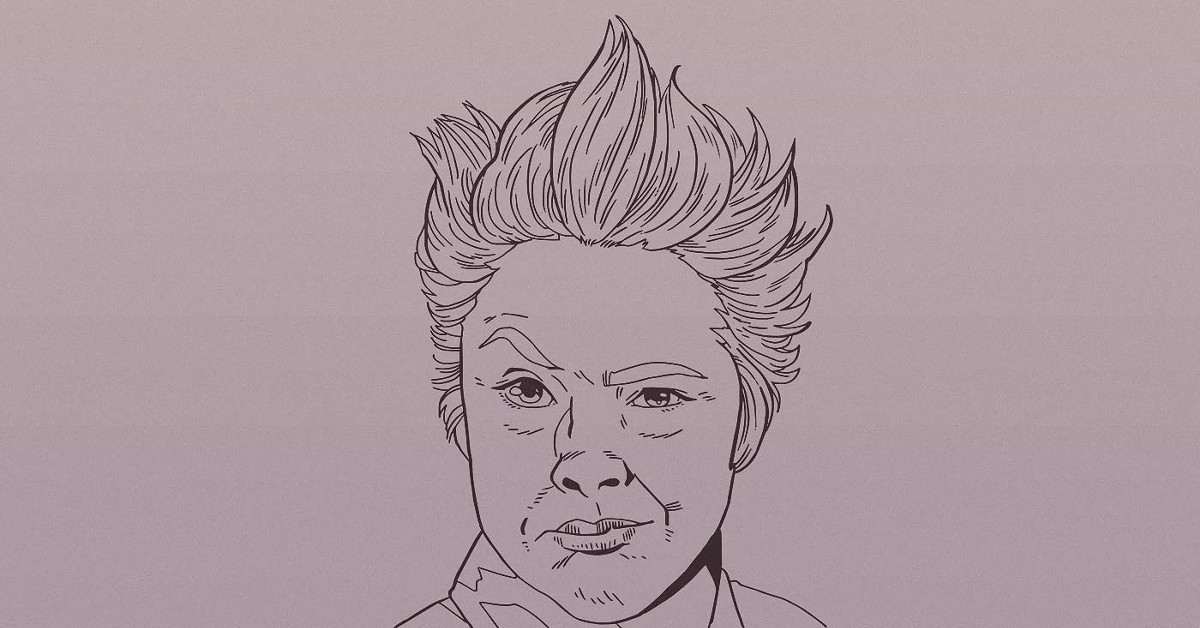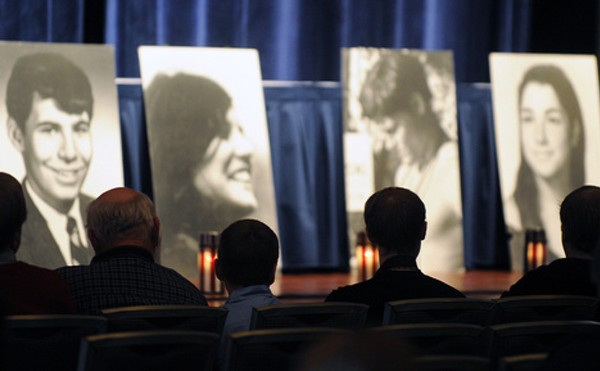Andre gets shot and ends up at the emergency room. His family gathers at the hospital and finds out he’s going to make it. While he recovers, some people come out to talk to his folks. One is a young man who says he used to be in a gang and got shot, too. Now he works to help other young people with a similar history. Another is an older guy. He explains that he works for a nonprofit that helps young people like Andre get out of gang life with vocational training and drug rehab. They talk to the family without judgment and make an appointment to follow up with Andre when he’s feeling better. They discuss family therapy options and arrange to meet with his mother the following week.
Paola calls her sister, Angel, agitated and crying and not making any sense. Angel is worried, especially about Paola’s two small children. She calls a crisis intervention unit. The woman who answers explains that a team with a psychiatrist and two trained specialists will drop by Paola’s apartment. Would Angel like to come along? Are there other family members who could help?
Paola talks to the team’s doctor. Angel is in the room and watches how supportive the team is. The doctor convinces Paola to take a pill, and team members stay with her until she falls asleep, making sure she doesn’t have an adverse reaction to the medicine. Angel stays over to help with the children, and, in the morning, Paola is rested and ready to talk treatment options. They call the follow-up counselor and schedule an appointment.
This is what a compassionate city looks like.
In the city we live in now, police deal with these situations. Here’s what people in similar situations say happens: Patronizing cops would interrogate and pressure Andre’s family. They’d tell them Andre had better be willing to talk because ER personnel found a couple dime bags in his sock, and he’s looking at jail time. His family would know that any information they shared with police could hurt him. Without being presented with any resources, they’d keep their mouths shut and worry about what’s next for Andre.
In the city we live in now, Angel’s option is to call police who don’t know or care about Paola. Louisville Metro police would bang on Paola’s door, speak harshly to her and maybe even arrest or kill her in front of her own children. Best case scenario, Paola could get carted off to the hospital in handcuffs, and her children are taken, maybe put into foster care, all because Paola has a mental illness.
Dealing with crises from a law-enforcement perspective, rather than a public health perspective, means the most vulnerable people in our community are met with punishment at their weakest moments.
This year, Washington, D.C., funded the Neighborhood Engagement Achieves Results Act, or NEAR Act. The program puts public health first, intervening in emergency room visits and mental crises with empathy and understanding. Disrupting the law enforcement model and engaging community means people are connected with resources rather than the punitive chaos law enforcement perpetuates.
The program, according to D.C. Policy Center, is also implementing, “ ... training for MPD officers on community policing, bias-free policing and cultural competency, as well as new surveys and data collection to assess the current relationship between MPD and District residents and to better track trends in crime, police stops and use of force.”
While NEAR doesn’t entirely remove law enforcement from mental crisis intervention, Metropolitan Police Department officers responding to certain types of crisis calls will now be paired with mental health clinicians.
At least 25 percent of people killed by police are mentally ill, according to a 2015 study by Treatment Advocacy Center, a nonprofit organization that researches issues regarding lack of access to mental healthcare. It’s clear that the authoritarianism displayed by police in these encounters results in hundreds of deaths a year.
In Louisville, the LMPD killed Isaac Jackson, 42 and Russell Bowman, 45, in April 2018. Each man was in the midst of a mental crisis that made it impossible for him to comply with police directives, and they died for it.
If the idea of a city without police sounds scary to you, that’s probably because you’re among the population who actually feel protected and served by police.
The LMPD patrols Louisville’s West End like it’s a war zone. On any Saturday night, the flashing lights of their patrol cars strobe into surrounding homes throughout the area. Cops use the loudspeakers on top of their cars, alarming pedestrians with barked orders. They profile and persecute neighborhood people.
If your family was in crisis, and the only option you had was calling the same people who beat up your cousin or took away your dad, what kind of help would you expect? It’s time for options.
It’s time to build a world without police.






